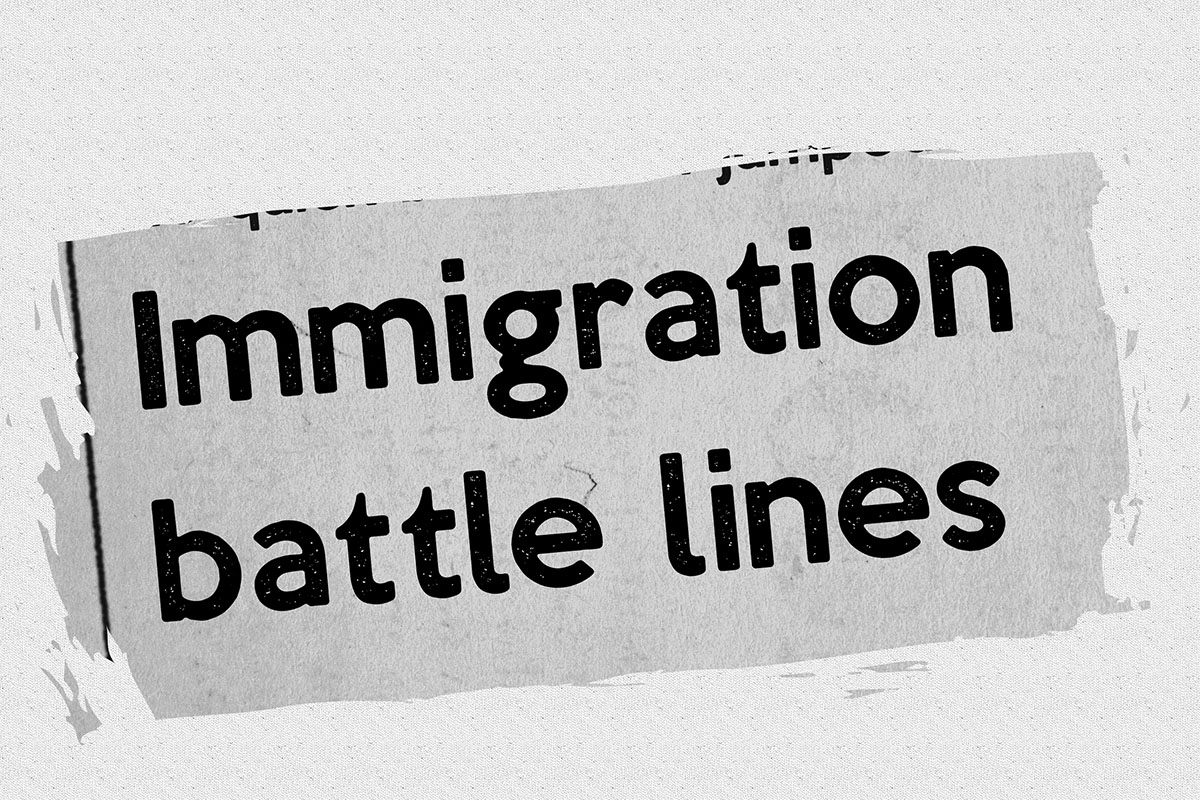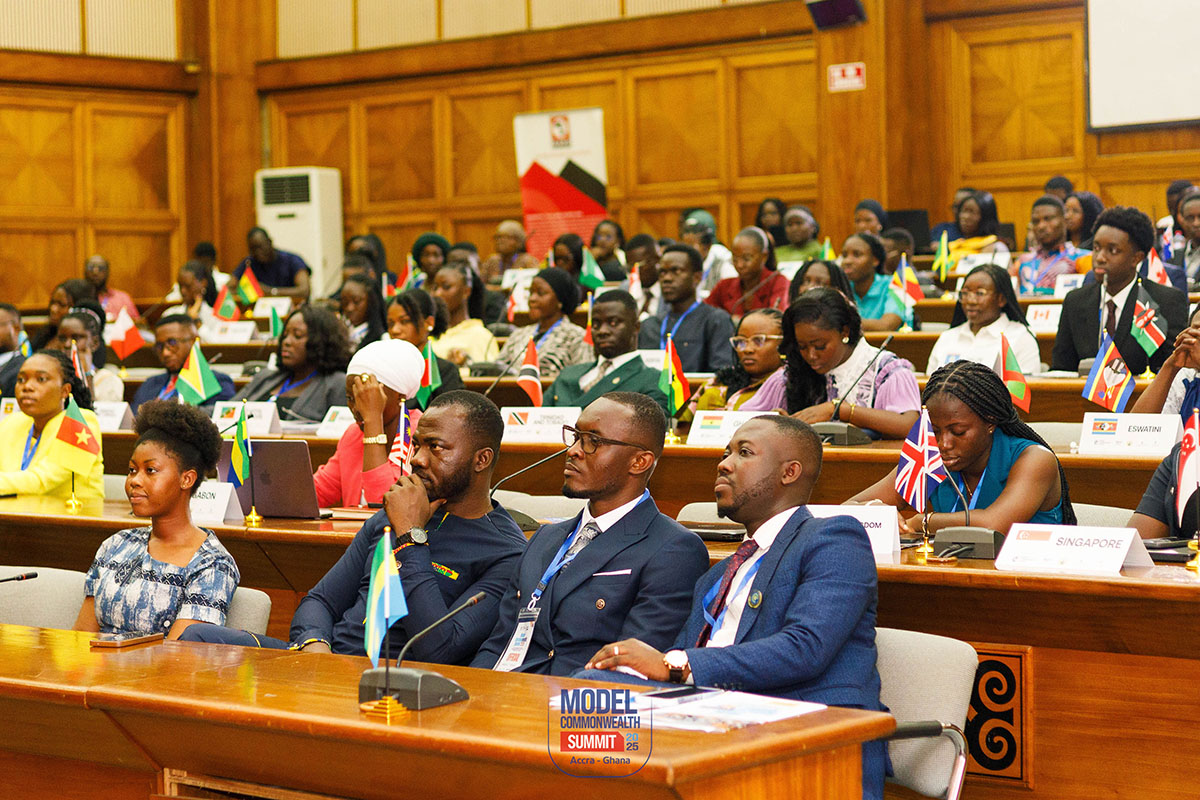Immigration Myths and Media Realities in the UK
September 14by Chiara Hattotuwa
As a country made up of 69 million people and a population density of 279 people per square kilometre, it is unsurprising that the populace may well come with an additional factor of diversity in both culture and thought. Indeed, in 2023 the Organisation for Economic Co-operation and Development (OECD) reported that the foreign-born population of the United Kingdom (UK) was at 15 per cent, with the presence of second or further generation immigrants meaning that the diversity of the UK’s culture has only increased since the boom of migration to Britain in 1945. Public opinions on immigration have therefore become more diverse.
According to YouGov, in 2025, responses to a question about if the public would support “Admitting no more new migrants, and requiring large numbers of migrants who came to the UK in recent years to leave” were evenly split, with 26 per cent of respondents answering either that they would ‘strongly support’ or ‘strongly oppose’ such measures. Such measures have never been used in the country, and while the current Labour government has reached a record level of deportations since 2018 at almost 19,000 in seven months, it is still much less than the average of 57,000 deportations per month under the Biden administration in the United States.
Indeed, while immigration has always been a large topic of discussion in the UK, according to Ipsos, it has been an issue of lesser importance among the public in general elections up to 2024, in comparison with the National Health Service (NHS) and the economy. Conversely, the percentage of the population who believe that immigration is the most important issue facing the country has risen from 45 to 58 per cent in less than a year.
So what does the media have to do with it? According to a 2025 YouGov survey, a lot; 32 per cent of respondents believed that the majority of immigration into the UK is illegal, with this rising to 55 per cent amongst those who support mass deportations, as a stark difference from the actual amount at four per cent as of 2024.
Likewise, this may well be reflected in public opinion over prime minister Keir Starmer’s position on immigration. Having previously made controversial statements on immigration rates such as referring to the country as an ‘island of strangers’ and pushing for record-high levels of deportation (a sharp turn from the centre-left Labour party’s usually more welcoming stance to immigration), according to YouGov polling, the majority of UK citizens view Starmer as a pro-immigration politician. I argue that this is a direct result of misassumptions amongst the public of irregular migrant presence in the United Kingdom, particularly as a result of media reporting and portrayals.
One striking example that comes to mind is the channel ‘migrantvlog’ on TikTok, an account that was eventually taken down, detailing the travels of an irregular immigrant to the UK via boat, before eventually receiving free benefits like food and housing. The issue, however (as The Independent reported) was that the videos were mass-produced by AI, gaining traction at over 100,000 views in total and receiving angry comments such as “The government might but the people won’t,” and “No way is [sic] not the right thing to do”. This furthermore tracks with public opinion – after all, the aforementioned YouGov survey found that 71% of all Britons have negative views on immigrants who arrive in small boats, in spite of the fact that immigrations via small boat made up only 0.86 per cent of total immigrations to the UK in 2024 according to the Migration Observatory. It is evident that many members of the public have focused strongly upon the most ‘detrimental’ cases of immigration into the UK as opposed to the more frequent and ‘beneficial’ cases (given that over 1/3 of the NHS doctors are non-UK nationals, and 41% of Indian immigrants alone take up high-skill jobs in the UK in comparison to 34% of UK-born citizens according to the Migration Observatory).
Even within traditional media, one may find an example of how the media has impacted public opinion and policies on immigration. GBNews, a free-to-air and opinionated TV news channel has come under repeated scrutiny in the past for its right-wing biased stances (especially in favour of right-wing party Reform UK), thus going against Ofcom’s regulations requiring TV news channels to be free from bias and setting it apart from the UK’s largest channels like BBC and Sky News. Despite this, as of August 1, 2025 GBNews had overtaken the BBC as being the most viewed TV news channel, raking in 80.6k viewers in comparison to the BBC’s 78.7k.
The difference between both channels’ descriptions of immigration-related news is stark, with headlines for the same story reading: “Small boat crossings to UK in first half of year up 48%, figures show” for the BBC, and “CHANNEL CHAOS: 20,000 Migrants & Counting – What’s Next for Britain?” for GBNews. As such, it is evident how such inflammatory views on immigration in the United Kingdom have been pushed to such a large extent.
Such biases have arguably had a strong impact upon policymaking in the United Kingdom today; after all, concerns over immigration from EU countries were a driving factor in the push for what eventually became Brexit. A simple look at the X accounts of the UK’s most prominent politicians confirm this – out of prime minister Keir Starmer’s 18 posts made in the past week, 10 were focused on negative messaging surrounding ‘illegal immigration’, likely an attempt to keep up with the rise of right-wing and immigration-focused party Reform UK (currently polling the highest amongst the British public at 27%). Likewise, the same can be applied to the UK’s political right, with ex-Reform UK MP Rupert Lowe coming under controversy for claiming that a group of charity rowers on the Channel were ‘illegal migrants’ on ‘dinghies’. As such, it is evident that negative mass-media portrayals of immigration have had an impact upon both policy-making and public political opinion in the UK, with both Keir Starmer’s pushes both in policy-making and the political leanings of his party acting as a response to the public and media’s large rightwards swing.
Chiara Hattotuwa is a teenage British citizen whose interests include social justice, culture and the law, as well as writing, literature and listening to/performing music. Chiara plays a variety of instruments and holds an ARSM diploma for singing. She aspires to one day have a career in law.




